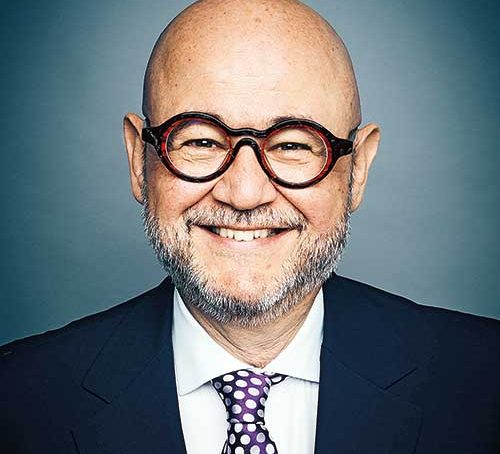

Dimitris Manikis, President & Managing Director for EMEA, Wyndham Hotels & Resorts
Hospitality News ME sat down with Dimitris Manikis, President & Managing Director for EMEA, Wyndham Hotels & Resorts for a one-on-one chat about the chain’s growth trajectory and franchising in the Middle East
Can you give us an idea of where the company stands in terms of growth trajectory and the strategy it’s laid out?
Wyndham Hotels & Resorts is the world’s largest hotel franchising company and a leading provider of hotel management services, with a global presence of approximately 9,200 hotels across more than 80 countries. Over the past year we’ve continued to expand our footprint across Europe, the Middle East, Eurasia and Africa (EMEA) – including important new openings, a series of key brand launches and new market entries.
Within the Middle East, we have seen dramatic expansion of our presence across the UAE, Bahrain and Saudi Arabia amongst other key markets. With 57 operational hotels and 10,977 rooms in the MEA region, and a robust pipeline of 21 hotels and over 4,000 rooms in place, we see substantial opportunities to further expand our reach – particularly within the mid-market sector.
In December 2018, we launched four new properties in Saudi Arabia, including Wyndham Garden Dammam – the first Wyndham Garden in the country – bringing us to 15 operational hotels and over 2,300 rooms across the Kingdom. In the UAE, we recently announced three new hotels in Dubai as part of the Deira Waterfront Development by Ithra Dubai, under the Wyndham, Days by Wyndham, and Super 8 by Wyndham brands – the first Super 8 and Days Inn properties in the UAE. The three new hotels will be situated along the Dubai Creek in the western part of Deira and help create a dynamic urban community and deliver further growth opportunities for the city.
We have seen exceptional success in Turkey, with 13 new openings in 2018 alone – including Ankara, Rize, Isparta, Kayseri and Diyarbakir to name but a few. In fact, I’m proud to report that since 2016, we have increased our number of hotels in Turkey by over 50%, making us the largest international hotel operator in the country with 76 hotels.
We are continuing to drive expansion across established and new markets. Just to mention a few, we recently entered Armenia, with our Ramada by Wyndham brand in central Yerevan, and our first Wyndham Grand in Tbilisi, Georgia has just opened as we continue to expand in this important market, in addition to further expansion in established markets like Turkey and Germany.
What do you anticipate will be the mix between management and franchise agreements in the next five years?
At a global level, we have largely grown through the franchise model and that’s why today we are proud to be the world’s largest hotel franchising company. In some markets we also have a large hotel management business. Here in the Middle East we have a good representation of both models. We have capabilities and are happy to work with partners on a franchised or managed basis, depending on their business model and market of operations and what makes sense for the individual partnerships. Hotel franchising is part of the mix in the region, and so it will be in the future. While our pipeline in the region today contains more rooms under management contracts, the last year or two we have seen an increasing demand for franchised models. Irrespective of this trend that we are seeing at Wyndham, the reality is that the region is more inclined to management contracts and we feel that this preference will continue in the years to come.
What’s the biggest challenge for the hotel industry as a whole in the Middle East right now?
The MENA region is transforming and so are the preferences and profiles of guests. If you look at travel patterns today, the growth of a global middle class, with more disposable income than previous generations, has given rise to a new demographic of traveler. People are looking for experience, value and accessibility above all else. With this shift, it is crucial that the hospitality industry addresses the gap in the current hotel supply to cater to a more diverse traveller.
Mid-scale inventory in this region is certainly not reflective of demand. The GCC market is dominated by luxury hotels. Dubai remains focused on the up-scale segment, with a ratio of mid-market to luxury hotels at just over 50%, compared to other mature destinations like New York where the average ratio is between 70 – 80% mid-market and 20 – 30% luxury – creating a large gap in offerings for travelers.
Despite this strong demand for mid-market hotel inventory, only limited mid-scale and economy hotels are entering the market right now. There are a number of factors for this, the biggest barrier being the high cost of land. The future success of hospitality providers will depend on the ability of hoteliers and developers to not only listen to, but to act on this market demand.
At Wyndham, we see tremendous opportunity in the economy and mid-scale segments and we will continue to leverage our solid foundation and experience a global hospitality powerhouse to further expand our mid-scale footprint across the Middle East region and help bridge this gap in the sector.
Add to Favorites













